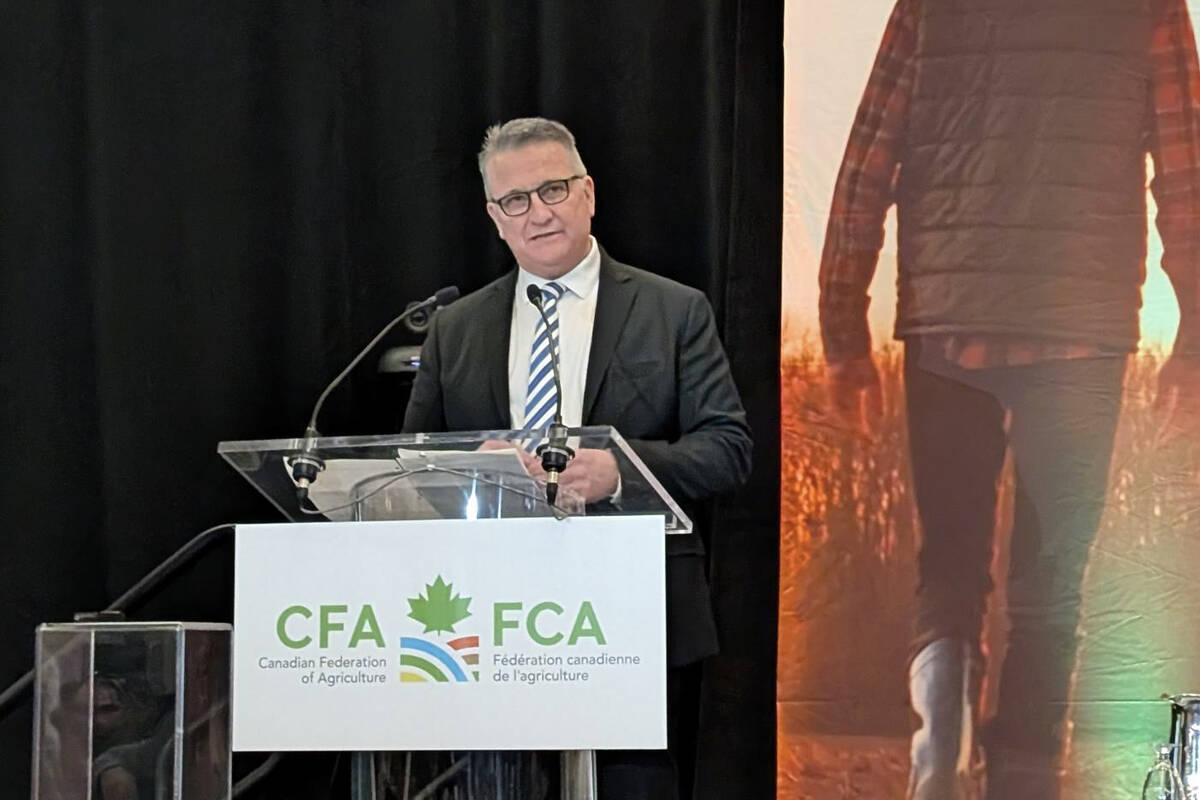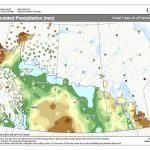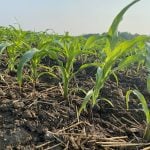The federal government has enlisted farm groups on the ground floor of consultations toward development of a long-term strategy to “amplify” the adoption and use of sustainable practices in agriculture over the next year.
Agriculture Minister Marie-Claude Bibeau on Dec. 12 announced the launch of public consultations on strategy development, running from now through March 2023. A discussion document is now available for comment.
The federal strategy “will serve as a guide to support the livelihoods of farmers while growing a sustainable sector,” the government said in a release. “By identifying goals and a way forward, Canada’s agriculture sector will be equipped to recover quickly from extreme events, thrive in a changing climate, contribute to world food security, while also contributing to Canada’s overall efforts to cut emissions.”
Read Also

Canadian agriculture must build on the moment federal politicians say
Labour, investment, research and red tape as among the challenges the federal government and agriculture sector must address to increase productivity and competativeness politicians pointed to at the Canadian Federation of Agriculture (CFA) AGM.
The government in its release emphasized that Canadian farmers “have already taken action on sustainability in a wide range of ways” and it wants to “amplify the work already underway and increase adoption of these best practices.”
Farmers’ expertise, the government said. “will be used to identify the best solutions in the development of the strategy.”
An inaugural meeting was held Dec. 12 for an advisory committee, co-chaired by Agriculture and Agri-Food Canada and the Canadian Federation of Agriculture (CFA) and made up of “industry experts” including farmers and representatives of ag associations and non-governmental organizations.
Committee members, the government said, “will collaborate to identify shared challenges and solutions as we take steps towards finalizing the strategy in the next year.”
The federal strategy will look at five specific focus areas: soil health, climate adaptation and resilience, water, climate change mitigation, and biodiversity.
The strategy, Bibeau said in the government’s release, “will pave the way to help us sustain the livelihoods of farmers. Drawing from their expertise and best practices, we can ensure that the sector is more resilient in the face of climate change.”
Winnipeg MP Terry Duguid, parliamentary secretary for Environment Minister Steven Guilbeault, cited Manitoba as an example of farmers on the front line of climate change, where they’ve experienced “two back-to-back droughts which have proved immensely challenging.”
Canada, he said, needs to be “strategic in how we contribute to cutting emissions, preparing for and recovering from extreme weather events.”
“This approach, which considers all facets of sustainability — environmental, economic, and social — is needed to ensure we can find pragmatic business solutions that support continued competitiveness and reduce the sector’s environmental footprint,” CFA president Mary Robinson said in the same release.
Other groups with representation on the advisory committee will include Canada Organic Growers, Egg Farmers of Canada, the Canadian Agri-Food Policy Institute, Farmers for Climate Solutions, the Canadian Canola Growers Association, Fertilizer Canada, the Canadian Cattle Association, Fruit and Vegetable Growers of Canada, the Canadian Pork Council, Grain Growers of Canada, the Canadian Wildlife Federation, Ducks Unlimited, the Canola Council of Canada, Nature United, Chicken Farmers of Canada, Pulse Canada, Dairy Farmers of Canada, Soy Canada and Quebec’s Union de producteurs agricoles (UPA).
Manitoba’s Keystone Agricultural Producers “has been advocating for the inclusion of farmers when it comes to tackling the challenges affecting our sector, and today’s announcement demonstrates the federal government is listening to ensure Canadian farmers have a seat at the table,” KAP president Bill Campbell said in a separate release.
“It is also important to note that the conversation around sustainability includes not only environmental concerns, but also social and economic, something that KAP has been seeking recognition of from government.”
UPA president Martin Caron, in a separate release, pointed to the “substantial” gains made in agriculture’s ecological shifts in recent years and said further initiatives and programs adapted to “regional and sectoral realities” will help spur further gains. — Glacier FarmMedia Network
















